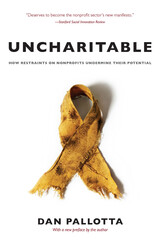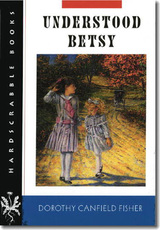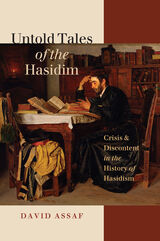300 scholarly books by Brandeis University Press and 5
start with U
300 scholarly books by Brandeis University Press and 5
300 scholarly books by Brandeis University Press
5 start with U start with U
5 start with U start with U

Unacknowledged Kinships
Postcolonial Studies and the Historiography of Zionism
Edited by Stefan Vogt, Derek Penslar, and Arieh Saposnik
Brandeis University Press, 2023
The first work to systematically investigate the potential for a dialogue between postcolonial studies and the history of Zionism.
There is an “unacknowledged kinship” between studies of Zionism and post-colonial studies, a kinship that deserves to be both discovered and acknowledged. Unacknowledged Kinships strives to facilitate a conversation between the historiography of Zionism and postcolonial studies by identifying and exploring possible linkages and affiliations between their subjects as well as the limits of such connections. The contributors to this volume discuss central theoretical concepts developed within the field of postcolonial studies, and they use these concepts to analyze crucial aspects of the history of Zionism while contextualizing Zionist thought, politics, and culture within colonial and postcolonial histories. This book also argues that postcolonial studies could gain from looking at the history of Zionism as an example of not only colonial domination but also the seemingly contradictory processes of national liberation and self-empowerment.
Unacknowledged Kinships is the first work to systematically investigate the potential for a dialogue between postcolonial studies and Zionist historiography. It is also unique in suggesting that postcolonial concepts can be applied to the history of European Zionism just as comprehensively as to the history of Zionism in Palestine and Israel or Arab countries. Most importantly, the book is an overture for a dialogue between postcolonial studies and the historiography of Zionism.
There is an “unacknowledged kinship” between studies of Zionism and post-colonial studies, a kinship that deserves to be both discovered and acknowledged. Unacknowledged Kinships strives to facilitate a conversation between the historiography of Zionism and postcolonial studies by identifying and exploring possible linkages and affiliations between their subjects as well as the limits of such connections. The contributors to this volume discuss central theoretical concepts developed within the field of postcolonial studies, and they use these concepts to analyze crucial aspects of the history of Zionism while contextualizing Zionist thought, politics, and culture within colonial and postcolonial histories. This book also argues that postcolonial studies could gain from looking at the history of Zionism as an example of not only colonial domination but also the seemingly contradictory processes of national liberation and self-empowerment.
Unacknowledged Kinships is the first work to systematically investigate the potential for a dialogue between postcolonial studies and Zionist historiography. It is also unique in suggesting that postcolonial concepts can be applied to the history of European Zionism just as comprehensively as to the history of Zionism in Palestine and Israel or Arab countries. Most importantly, the book is an overture for a dialogue between postcolonial studies and the historiography of Zionism.
[more]

Uncharitable
How Restraints on Nonprofits Undermine Their Potential
Dan Pallotta
Brandeis University Press, 2022
Uncharitable investigates how for-profit strategies could and should be used by nonprofits.
Uncharitable goes where no other book on the nonprofit sector has dared to tread. Where other texts suggest ways to optimize performance inside the existing charity paradigm, Uncharitable suggests that the paradigm itself is the problem and calls into question our fundamental canons about charity. Dan Pallotta argues that society’s nonprofit ethic creates an inequality that denies the nonprofit sector critical tools and permissions that the for-profit sector is allowed to use without restraint. These double standards place the nonprofit sector at an extreme disadvantage. While the for-profit sector is permitted to use all the tools of capitalism, the nonprofit sector is prohibited from using any of them. Capitalism is blamed for creating inequities in our society, but charity is prohibited from using the tools of capitalism to rectify them—and ironically, this is all done in the name of charity. This irrational system, Pallotta explains, has its roots in four-hundred-year-old Puritan ethics that banished self-interest from the realm of charity. The ideology is policed today by watchdog agencies and the use of so-called efficiency measures, which Pallotta argues are flawed, unjust, and should be abandoned. By declaring our independence from these obsolete ideas, Pallotta theorizes, we can dramatically accelerate progress on the most urgent social issues of our time. Uncharitable is an important, provocative, timely, and accessible book—a manifesto about equal economic rights for charity. This edition has a new, updated introduction by the author.
Uncharitable goes where no other book on the nonprofit sector has dared to tread. Where other texts suggest ways to optimize performance inside the existing charity paradigm, Uncharitable suggests that the paradigm itself is the problem and calls into question our fundamental canons about charity. Dan Pallotta argues that society’s nonprofit ethic creates an inequality that denies the nonprofit sector critical tools and permissions that the for-profit sector is allowed to use without restraint. These double standards place the nonprofit sector at an extreme disadvantage. While the for-profit sector is permitted to use all the tools of capitalism, the nonprofit sector is prohibited from using any of them. Capitalism is blamed for creating inequities in our society, but charity is prohibited from using the tools of capitalism to rectify them—and ironically, this is all done in the name of charity. This irrational system, Pallotta explains, has its roots in four-hundred-year-old Puritan ethics that banished self-interest from the realm of charity. The ideology is policed today by watchdog agencies and the use of so-called efficiency measures, which Pallotta argues are flawed, unjust, and should be abandoned. By declaring our independence from these obsolete ideas, Pallotta theorizes, we can dramatically accelerate progress on the most urgent social issues of our time. Uncharitable is an important, provocative, timely, and accessible book—a manifesto about equal economic rights for charity. This edition has a new, updated introduction by the author.
[more]

Understood Betsy
Dorothy Canfield Fisher
Brandeis University Press, 1999
Thanks to her loving but over-protective guardian aunts, Betsy is a fearful, self-absorbed, nine-year-old hypochondriac. One of the most terrible items on her long list of fears is the horrid cousins her aunts never mention without shuddering. When her aunts are suddenly no longer able to care for her, Betsy is, incredibly, sent to live with those very relatives. Arriving in Vermont alone and full of trepidation, Betsy is immediately invited by her Uncle Henry to drive the carriage. Steering the fearful horses is just the beginning of her adventures in New England -- and independence. By the novel's end, Betsy has become very fond of the rough but affectionate relatives who eat in the kitchen and expect her to wash her own dishes. When she gets a letter from the aunts inviting her to come home, Betsy must make a difficult choice. Understood Betsy has been published in numerous editions worldwide since its 1917 debut, and continues to charm readers with its delightful and surprisingly liberated characters.
[more]

Unlocking Learning
International Perspectives on Education in Prison
Edited by Justin McDevitt and Mneesha Gellman
Brandeis University Press, 2024
Contributors from many countries share their insights about effective educational programs for people in prison and show what the United States can learn from the models and struggles beyond its borders.
Countries around the world have disparate experiences with education in prison. For decades, the United States has been locked in a pattern of exceptionally high mass incarceration. Though education has proven to be an impactful intervention, its role and the level of support it receives vary widely. As a result, effective opportunities for incarcerated people to reroute their lives during and after incarceration remain diffuse and inefficient. This volume highlights unique contributions from the field of education in prison globally. In this volume, academics and practitioners highlight new approaches and interesting findings from carceral interventions across twelve countries. From a college degree-granting program in Mexico to educational best practices in Norway and Belgium that support successful reentry, innovations in education are being developed in prison spaces around the world. As contributors from many countries share their insights about providing effective educational programs to incarcerated people, the United States can learn from the models and struggles beyond its borders.
Countries around the world have disparate experiences with education in prison. For decades, the United States has been locked in a pattern of exceptionally high mass incarceration. Though education has proven to be an impactful intervention, its role and the level of support it receives vary widely. As a result, effective opportunities for incarcerated people to reroute their lives during and after incarceration remain diffuse and inefficient. This volume highlights unique contributions from the field of education in prison globally. In this volume, academics and practitioners highlight new approaches and interesting findings from carceral interventions across twelve countries. From a college degree-granting program in Mexico to educational best practices in Norway and Belgium that support successful reentry, innovations in education are being developed in prison spaces around the world. As contributors from many countries share their insights about providing effective educational programs to incarcerated people, the United States can learn from the models and struggles beyond its borders.
[more]

Untold Tales of the Hasidim
Crisis and Discontent in the History of Hasidism
David Assaf
Brandeis University Press, 2011
This fascinating volume reveals some of the dark, dramatic episodes concealed in the folds of the hasidic cloak—shocking events and anomalous figures in the history of Hasidism. Using tools of detection, Assaf extracts historical truth from a variety of sources by examining how the same events are treated in different memory traditions, whether hasidic, maskilic, or modern historical, and tells the stories of individuals from the hasidic elites who found themselves unable to walk the trodden path. By placing these episodes and individuals under his historical lens, Assaf offers a more nuanced historical portrayal of Hasidism in the nineteenth-century context.
[more]
READERS
Browse our collection.
PUBLISHERS
See BiblioVault's publisher services.
STUDENT SERVICES
Files for college accessibility offices.
UChicago Accessibility Resources
home | accessibility | search | about | contact us
BiblioVault ® 2001 - 2024
The University of Chicago Press









